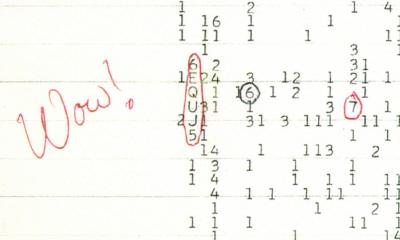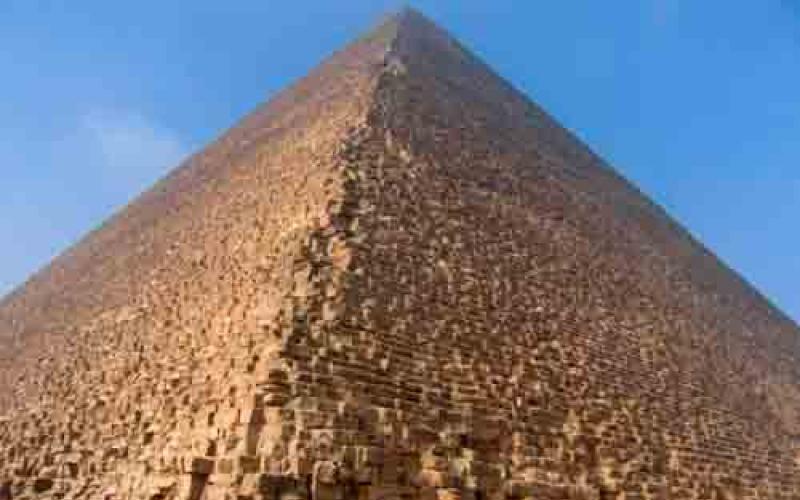In 1660, the Stuarts were restored in Britain. Charles II became King of England, Scotland and Ireland. The early years of Charles II and his younger brother James were by no means happy. As children, they experienced the horrors of the civil war. In adolescence, they witnessed the trial of their father, Charles I, and his execution, they spent their youth in exile, where they lived in poverty, receiving meager financial support from France and Holland.
However, the first years of the restoration were successful for the Stuarts. The Royalist Parliament was compliant in a way that their father never dreamed of. They were popular among the people, except for the adherents of the "good old cause", that is, the Protestant Republicans.
But good things don't last long - plague and fire have hit London. Parliament began to grumble - the royal family turned out to be greedy for money and was suspected of sympathizing with the Catholics. The unpopular war with the Netherlands also played its role - the British suffered a series of defeats at sea, the Dutch even entered the Thames and destroyed English ships.
By 1670, the English treasury was empty, and Charles II, together with his brother James, Duke of York, decided to follow the example that was set to them from the other side of the English Channel. This decision turned out to be fatal: Jacob, who inherited the throne from his brother in 1685, lost his crown, and in 1714 the Hanoverian branch replaced the Stuart dynasty. All these events were predicted by Nostradamus, but in 1670 they were still ahead and it would be useful for the Stuarts to seek an alliance with France. Charles concluded it by signing the Treaty of Dover, which contained secret protocols, which were not known until a century later, under which Charles received large subsidies in exchange for converting to Catholicism and subordinating British policy, both foreign and domestic, to the interests of France.

Louis XIV de Bourbon, also known as the "Sun King" (fr. Louis XIV Le Roi Soleil), also Louis XIV the Great, (1638 - 1715) - King of France and Navarre from May 14, 1643. He reigned for 72 years - longer than any other monarch of the largest states in Europe. Louis, who survived the wars of the Fronde in his youth, became a staunch supporter of the principle of absolute monarchy (he is often credited with the expression “The State is me”), he combined the strengthening of his power with the successful selection of statesmen for key political posts. The reign of Louis - a time of significant consolidation of the unity of France, its military power, political weight and intellectual prestige, the flowering of culture, went down in history as the Great Age. The Sun King, who determined the political life of all of Europe for half a century, managed to significantly strengthen the power and prestige of his state. France forgot about internal strife and found prosperity, which was predicted by Nostradamus in quatrain 89 of Centuria X
“Brick walls will turn into marble.
Fifty-seven years of joy to people.
Updated aqueduct.
Health, abundance of fruits, honeyed times.
The first line of this quatrain is of particular interest - the allusion to Louis XIV echoes the words of the Roman historian Suetonius regarding the emperor Augustus (63 BC - 14 AD), who, according to him, “saw Rome brick, and made it marble. The half-reference to the two rulers is of particular significance, since Louis was called the Sun King, and Augustus was posthumously deified as the incarnation of the "Invincible Sun".
The army of Louis XIV was the largest, best organized and led. His diplomacy dominated all European courts. The French nation, with its achievements in the arts and sciences, in industry and commerce, has reached unprecedented heights. The court of Versailles (Louis transferred the royal residence to Versailles) became the object of envy and surprise of almost all modern sovereigns, who tried to imitate the great king even in his weaknesses. Strict etiquette was introduced at the court, regulating all court life. Versailles became the center of all high society life, in which the tastes of Louis himself and his many favorites (Lavaliere, Montespan, Fontange) reigned. All the highest aristocracy coveted court positions, since living away from the court for a nobleman was a sign of strife or royal disgrace. “Absolutely without objection,” according to Saint-Simon, “Louis destroyed and eradicated every other force or authority in France, except those that came from him: reference to the law, to the right, was considered a crime.” This cult of the Sun-King, in which capable people were increasingly pushed aside by courtesans and intriguers, was bound to lead inevitably to the gradual decline of the entire edifice of the monarchy.
The years of the reign of Louis XIV are indeed characterized by peace within the country (apart from the persecution of Protestants), but his foreign policy was rather aggressive. However, for the sake of justice, it must be said that the militancy of Louis, especially in the first years of his reign, was a natural reaction to childhood impressions associated with wars, including civil wars.

This period of unrest in France was foreseen by Nostradamus, who described it in quatrain 58 of Centuria X:
"During mourning, the treacherous monarch
Will go to war with young Ematien.
Gaul trembles, the boat is in danger.
Marseille is being tested, and there is talk in the West.”
The "young Ematien" mentioned in the second line of the quatrain is Louis, the Sun King, since in classical mythology Ematien was the child of the dawn and was naturally associated with the sun. The “treacherous monarch” from the first line is the Spanish king Philip IV, who fought with France during her national mourning on the occasion of the death in 1643 of King Louis XIII. As for the trembling Gaul (third line), this refers to the Fronde, which opposed excessive taxes and the domination of Cardinal Mazarin. This should also include other disorders that accompanied the years of minority of Louis XIV.
The words "boat in danger" have, as is often the case in the Centuries, a double meaning. The first is connected with the difficult situation of the Gallican Church in 1643-1661. The second is with the differences between Rome and King Louis XIV. The first is explained by the fact that during these years the church was put in a difficult position due to the fact that the main confessor of Louis XIV was Cardinal Mazarin himself.

In quatrain 58 of Centuria X, Nostradamus predicted that as a result of the policy of Louis XIV, the Sun King, the Catholic Church, that is, the boat of the Apostle Peter, would be in danger. Since Louis XIV was a fanatical Catholic (although not always pious), this prediction of Nostradamus seemed highly doubtful. But in fact it turned out to be surprisingly true, because at the time when Louis's diplomatic and military successes reached their zenith and flatterers began to call him "the glory of Europe", the long-brewing conflict between the king and the papal church broke out.
At the heart of the conflict were the rights to own certain material values, as well as free parishes, which, as the king believed, should have belonged to him. The Church Council of France, meeting in 1682, adopted a Declaration containing four points, according to which papal power was limited by the laws and customs of the kingdom of France and its church, and the king in all secular affairs became independent of church authority. The pope responded by refusing to ordain the bishops appointed by Louis, which led to new intrigues that weakened both church and state.
Louis managed to win over the Church Council to his side, playing on the irreconcilable attitude of the French church towards the Protestants. Although the French Calvinist Protestants enjoyed the rights guaranteed by the Edict of Nantes of 1598, the Catholic Church of France, beginning in 1651, began to do everything in its power to ensure that the articles of this edict had no legal force.
Desiring to win over the Gallican clergy to his side in the conflict with Rome, Louis supported his policy from the very beginning of his reign in 1661. From then until 1685, the Huguenots (French Calvinists) were persecuted - their schools, colleges and hospitals were closed. Various fines were imposed on them, and when these measures proved ineffective, the troops went into action. As a result, Louis in 1685 canceled the Edict of Nantes and proceeded to the direct persecution of the Protestants, which led to the eight-year civil war predicted by Nostradamus 150 years earlier.

Three years after the repeal of the Edict of Nantes, all attempts by Louis to establish the dominance of the Catholic Church in England, which he had made since 1670, finally failed. And William, Prince of Orange prevented him from doing this. Both the failure of Louis and the identity of his opponent were known to Nostradamus in advance, which he wrote about in quatrains 67, 68 and 69 of Centuria II.
William of Orange was the son-in-law of King James II of England, former Duke of York and younger brother of Charles II. At the request of many prominent British Protestants, William invaded England and, together with his wife Mary, seized the English throne. For Louis, this was a serious blow, which Nostradamus also predicted:
"The Gallic king hails from the Celtic lands on the right
Seeing discord in the Great Monarchy,
Raise his scepter over three slain leopards,
To spite the high-ranking Capet."

later King William III of England
Revoking the Edict of Nantes in 1685, Louis XIV decided that he had done away with the French Calvinists. Many Protestants converted to Catholicism, others left their country, and yet the Huguenot communities managed to survive, especially in remote areas such as the Cevennes.
In 1703, the Highlander Protestants, driven to despair by the cruelty of the authorities and the massacres, rebelled and waged a guerrilla war against the royal army for eight years. They fought bravely, but in the end they were defeated.
All this Nostradamus predicted in quatrain 63 of Centuria II:
“The army of the Gauls will march against the mountaineers.
They will be discovered and lured into a trap,
And they will die by the swords…”
In some ways, this prediction is vague, and one could argue whether it refers to the war of the French army with the Protestant highlanders. But its meaning is confirmed by the content of quatrain 64 of Centuria II, which refers to the followers of the teachings of Calvin and mentions the Cevennes mountains:
“The inhabitants of Geneva will dry up from thirst and hunger. Their hopes will be dashed.
The law of Sebenne will also be on the verge of collapse. The fleet will not be able to enter a major port.”
In this quatrain, the only line that requires explanation is the last one. Apparently, this means that the Calvinists of different countries will not be able to help the "Kamisars", as the Protestant partisans were called.








